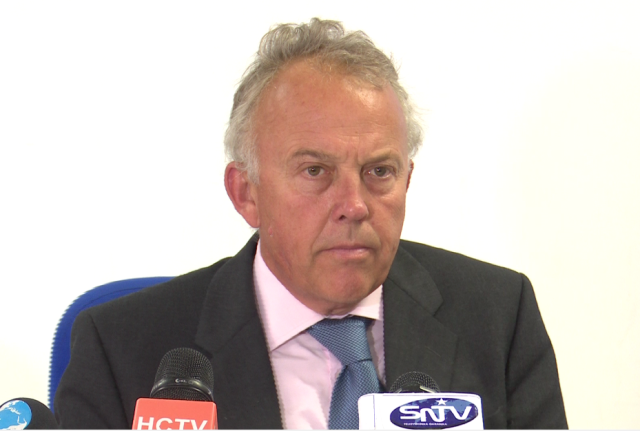State remains key actor in free speech repression in Somalia-UN report

Journalists and human rights defenders continue to face significant repression both from state and non-state actors in Somalia despite progress in establishment of relevant freedom of expression laws, a UN report has said.
The report released in Mogadishu Sunday notes national security and intelligence agencies in the country have on multiple occasions operated outside the constitutional and legal frameworks in the country, arbitrarily arresting journalists and shutting down media houses.
“NISA routinely disregard these protections as well as guarantees under international human rights law, including access to legal representation and to family visits, and the right to be presented before judicial authorities,” the report noted.
Though the Intelligence agency was not established by law or Presidential decree as the report observes, it is still bound by Federal Constitution, which provides that the security services must be accountable, comply with the rule of law, and are subject to civilian control.
The report which comes briefly ahead of the elections starting later this month also observes that freedom of expression which plays a central in the building of democratic States especially in time of political transformation, continues to be significantly limited.
Between January 2014 and July 2016, the report says, there have been 120 cases of arbitrary arrests and detention of media workers in various parts of the country. Moreover, the report indicates only 10 of the 48 journalists and media workers arrested have been brought before a court.
UN Special Envoy to Somalia Michael Keating said despite significant progress in the recent years after decades of conflict and violence, human rights violations remain a course of concern in the country.
“…Somalis continue to suffer multiple human rights deficits. They need and deserve accountable institutions. We are encouraged by the fact that federal and state governments are taking the report seriously. We understand that the relevant agencies are reviewing its contents and recommendations. We hope that it will prompt measures that will improve their performance and result in greater enjoyment of human rights by all Somalis,” said Keating.
National laws and directives also pose a challenge to freedom of expression in Somalia, the report said. Vague statements for example in the Federal Media Law 2015 render the law subject to interpretations which inhibit freedom of expression.
“However, some terms used are unclear, which allow for subjective interpretation leading to undue restrictions or limitations on the right to freedom of expression. These terms include “disseminating false news”, “inciting violence”, and “defamation of persons or institutions.” The UN says.
The report calls on the Federal Government and regional administrations to review laws or sections of laws which curtail freedom of expression while also urging the formation of human rights bodies to further protect human rights in the country.